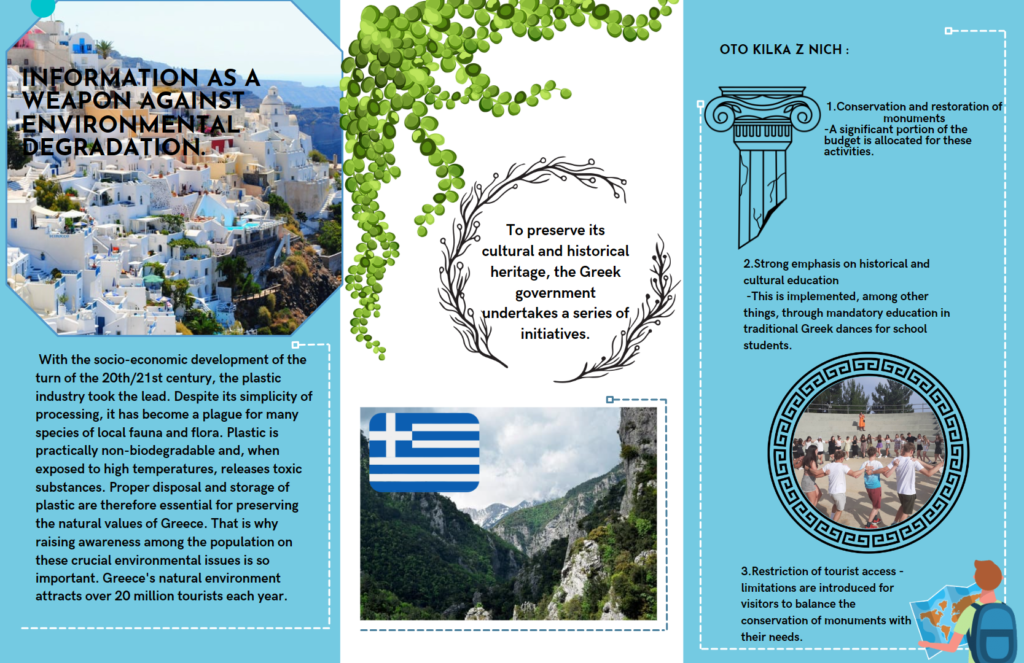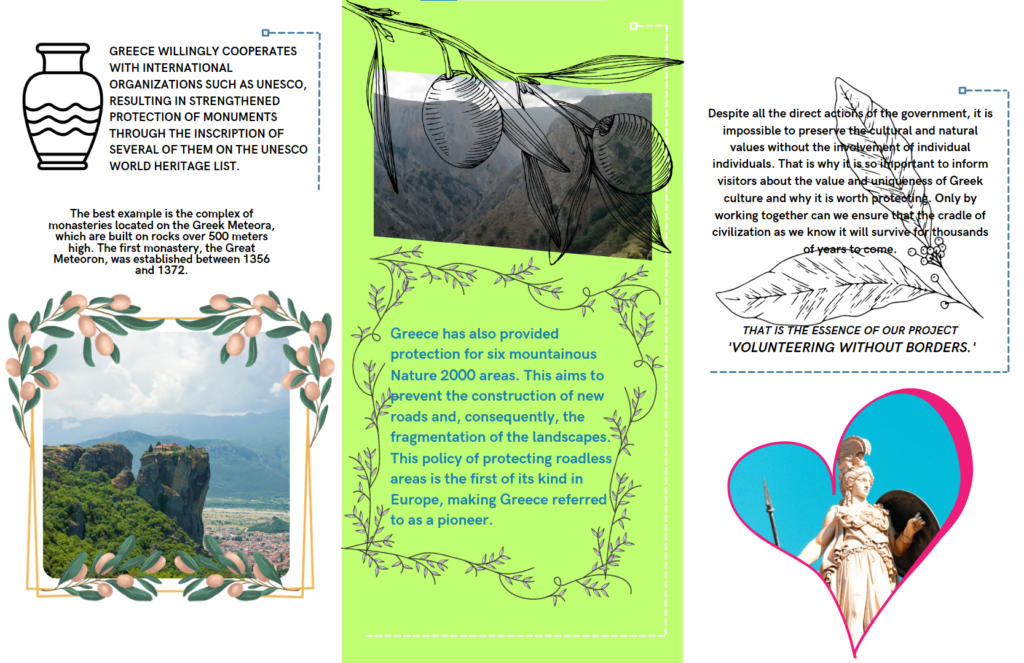
It’s not surprising that Greece is one of the most important tourist destinations in the world, attracting over 34 million tourists from around the globe each year. It is known worldwide for the famous Athenian Parthenon, mesmerizing Metheors and the various charms of its mountainous mass, the abode of the gods, Mount Olympus. However, the development of the tourism industry and the increase in plastic emissions are causing growing problems related to the preservation of this valuable cultural heritage.
The goal is to protect the Greek heritage and preserve it in the most original state possible. One of the responses to these challenges is dedicating a significant portion of the budget to the conservation and restoration of monuments. At the same time, access restrictions for tourists are being implemented, aiming to balance the protection with the needs of visitors.
The Greek government also collaborates with international organizations such as UNESCO, resulting in many landmarks being inscribed on the UNESCO World Heritage List, including sites like Meteora and the island of Delos. This provides recognition of the value of these places by the international community and additional protection.
Another action taken by the authorities is raising awareness among the local community and tourists through educational campaigns, emphasizing the value of this heritage. Greek schools place special emphasis on teaching history and culture. An example of this is the mandatory classes on Greek national dances taught in primary schools.
The government is also continuing to develop cycling tourism and expand existing bike routes. Such initiatives attract new tourists while encouraging citizens to adopt a more active and environmentally friendly lifestyle.
Greece, as one of the most significant cultural countries in Europe, safeguards its heritage. Thanks to the efforts of the government, local communities, and cooperation with international organizations like UNESCO, Greek culture and history remain alive and accessible to future generations. By preserving Greece’s cultural heritage, we contribute to the conservation of values, ideas, and achievements that have had a tremendous impact on our civilization.
-‘Volunteering Without Borders.’



